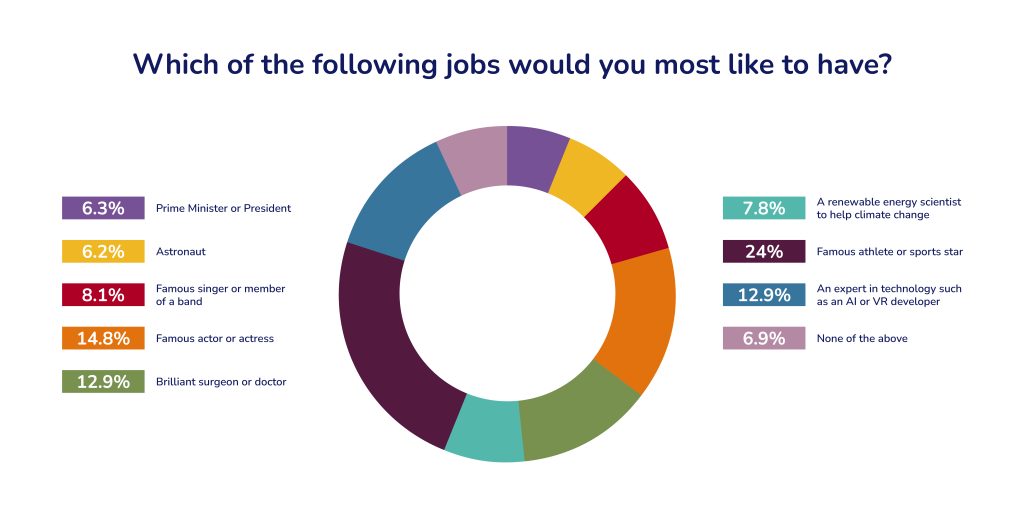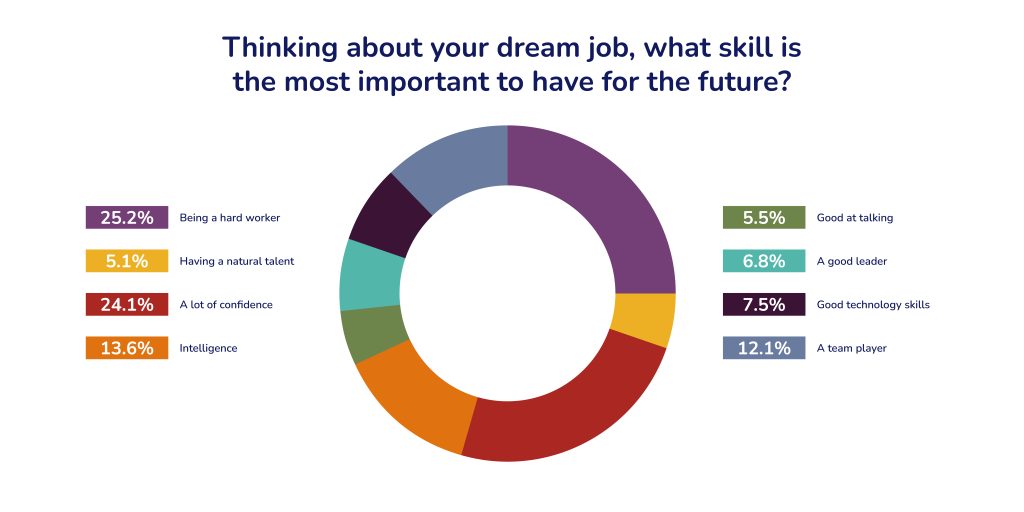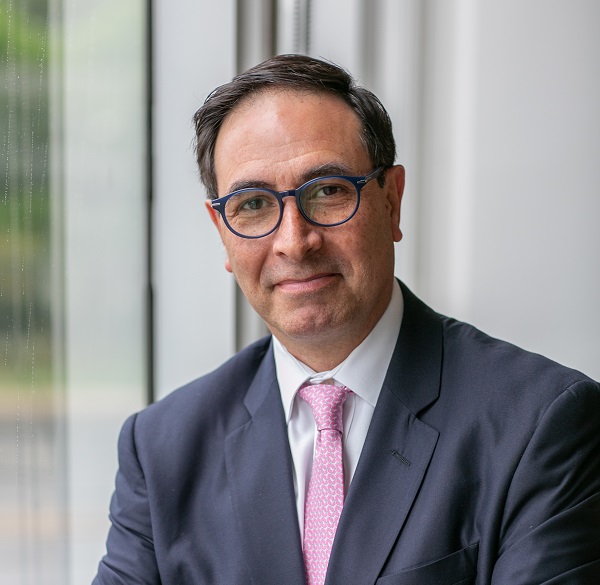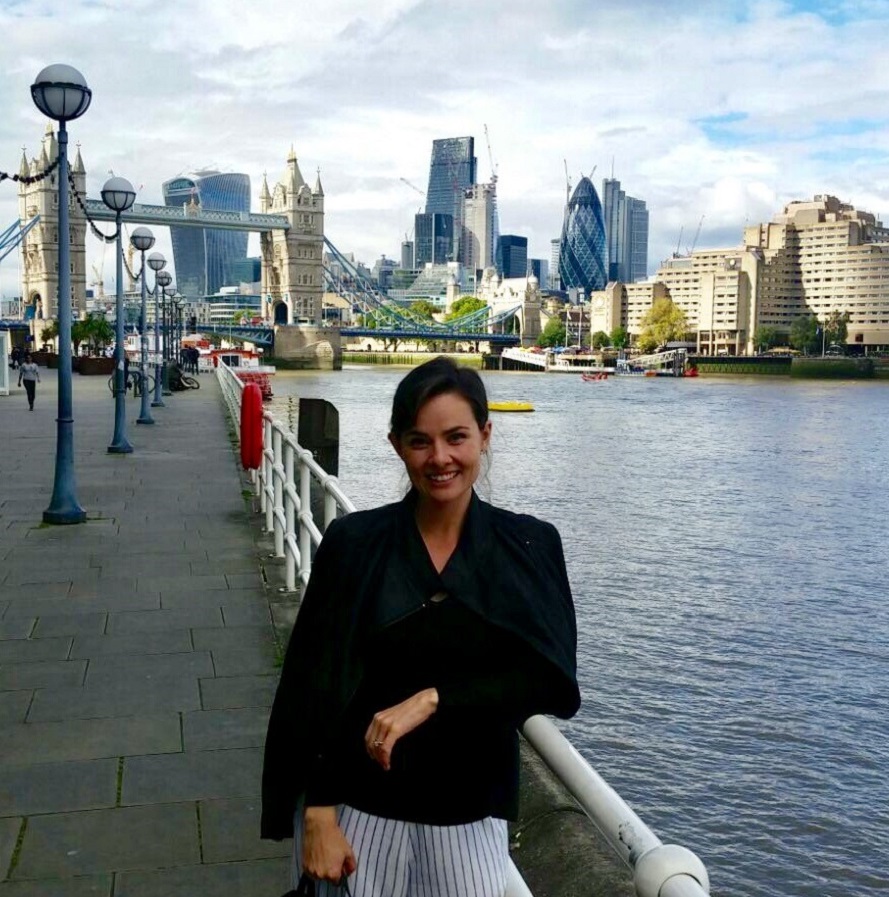In the wake of the recent UK and US elections and Donald Trump’s inauguration, a new survey of primary and secondary school students reveals that less than 10% (6.3 percent) of students in England aspire to be a Prime Minister or President when they grow up, leading experts to question if these political events have put young people off leadership.
The survey, conducted by ACS International Schools, asks students aged between eight and 18 years old what job role they would most like to have when they finish education. From a list of job roles including a surgeon, climate change scientist, astronaut, technology expert, Prime Minister or President, singer, actor or actress, and athlete or sports star, almost a quarter (24 percent) of participants chose athlete or sports star followed by an actor or actress (14.8 percent) but less than 10% want to become Prime Minister or President.

Robert Harrison, Director of Education and Integrated Technology at ACS International Schools, said: “The data suggests that young people, more than ever, are disengaged with politics, politicians and, more concerning, leadership in general. With the emergence of new, innovative industries, students now require a unique set of employability skills in order to be properly prepared for life at university and the wider workplace.”
In the survey, students also share their views on the most important workplace and interpersonal skills for the future. Skills listed in the survey as options include being a hard worker, natural talent, confidence, intelligence, communication, leadership, technology literacy and teamwork. Of those students who selected that they wanted to become the Prime Minister or President, only 3.5 percent chose ‘intelligence’ as the most important skill to have for the future.
Across the survey, only one in ten students selected ‘a good leader’ as the most vital skill. Around a quarter of respondents think ‘being a hard worker’ and ‘confidence’ are the most important (25.2 percent and 24.1 percent respectively).

Professor Sam Wass, Child Psychologist and Neuroscientist, said: “These findings agree with other research which shows that trust and engagement with political institutions is declining over time[i] especially among young people[ii]. Education needs to work harder to create trust in democratic institutions. This in turn, will help to inspire our future leaders – the world needs them now more than ever!
“It is encouraging that the findings also show that children recognise hard work and confidence as important workplace skills as research shows that both features predict long-term success in the workplace[iii][iv].
In a separate report conducted collaboratively by ACS International Schools and the IB Schools and Colleges Association (IBSCA), the ability to communicate, an inquiring mind and thinking critically are revealed as the most desirable skills for British Small and Medium Enterprises (SMEs). These skills are all essential for effective leadership, proving how important the trait is in the eyes of employers.
Harrison concluded: “We know that subject knowledge alone is not enough for students to thrive in an ambiguous future. To be ready, students need an education that is grounded in 21st century skills such as leadership, communication and creativity. Countless pieces of research have shown that universities and employers are desperate for these skills. So, our data presents a real reminder for us all to re-engage children in leadership learning, and in doing so, positively impact future outcomes for them and the world too.”
Less than 10% of students want to become a Prime Minister or President!
[i] Valgarðsson, V., Jennings, W., Stoker, G., Bunting, H., Devine, D., McKay, L., & Klassen, A. (2024). A crisis of political trust? Global trends in institutional trust from 1958 to 2019. British Journal of Political Science.
[ii] Chevalier, T. (2019). Political trust, young people and institutions in Europe. A multilevel analysis. International Journal of Social Welfare, 28(4), 418-430.
[iii] Fernández Martín, F. D., Arco Tirado, J. L., & Hervás Torres, M. (2020). Grit as a predictor and outcome of educational, professional, and personal success: A systematic review.
[iv] Sterling, A. D., Thompson, M. E., Wang, S., Kusimo, A., Gilmartin, S., & Sheppard, S. (2020). The confidence gap predicts the gender pay gap among STEM graduates. Proceedings of the National Academy of Sciences, 117(48), 30303-30308.
About the research
837 students in England aged between 8 and 18 years old were surveyed by ACS International Schools. Survey summary data and interviews available upon request.
[i] Valgarðsson, V., Jennings, W., Stoker, G., Bunting, H., Devine, D., McKay, L., & Klassen, A. (2024). A crisis of political trust? Global trends in institutional trust from 1958 to 2019. British Journal of Political Science.
[ii] Chevalier, T. (2019). Political trust, young people and institutions in Europe. A multilevel analysis. International Journal of Social Welfare, 28(4), 418-430.
[iii] Fernández Martín, F. D., Arco Tirado, J. L., & Hervás Torres, M. (2020). Grit as a predictor and outcome of educational, professional, and personal success: A systematic review.
[iv] Sterling, A. D., Thompson, M. E., Wang, S., Kusimo, A., Gilmartin, S., & Sheppard, S. (2020). The confidence gap predicts the gender pay gap among STEM graduates. Proceedings of the National Academy of Sciences, 117(48), 30303-30308.









